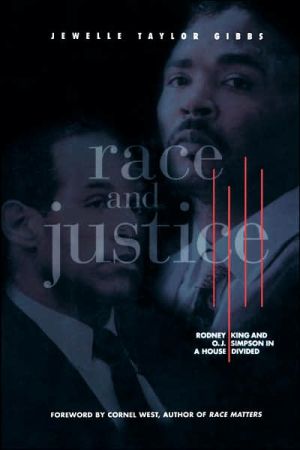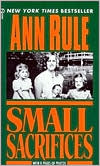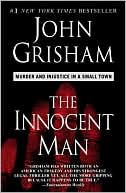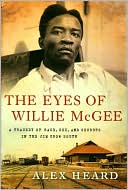Race and Justice: Rodney King and O. J. Simpson in a House Divided
In this thought-provoking book, psychologist and scholar Jewelle Taylor Gibbs puts the Rodney King and O. J. Simpson trials under the microscope to show that the issue of race was at the very heart of both of these emotionally charged cases. And, she observes, given the racial and ethnic composition of the members of the two juries, their verdicts were all but predictable in view of their different experiences with the police.Race and Justice reviews the turbulent events of the two so-called...
Search in google:
Puts the Rodney King and O. J. Simpson trials under the microscope Reviews the turbulent events of the Rodney King and O. J. Simpson trials from a social and political framework of race relations and police misconduct. This thought-provoking book shows that the issue of race was at the very heart of both of these emotionally charged cases. Psychologist and scholar Jewelle Taylor Gibbs shows how King and Simpson have been transformed by their trials into symbols of the different worlds inhabited by blacks and whites in America. Gibbs's compelling analysis of the issues that permeated these trials will challenge even the most cynical observer to rethink any previously held assumptions about race and the criminal justice system. Publishers Weekly Gibbs, a clinical psychologist, defends the mostly black O.J. Simpson jury against the perception that race was the key factor in its decision to acquit him of double murder. There was ample cause for reasonable doubt, she argues. Yet race, she maintains, was nonetheless an overwhelming factor in both the Simpson case and in the 1992 acquittal (by a predominantly white jury) of four white LAPD officers who brutally beat black motorist Rodney King. In this detailed, impassioned analysis of both cases and their aftermaths, she emphasizes that African Americans' rage at the King jury, and empathy with the Simpson verdict, reflects their daily personal experience with an inequitable criminal justice system, police harassment and brutality, systemic racism and discrimination. A social policy professor at UC-Berkeley, Gibbs insists the Simpson jury's willingness to entertain the defense's theory of a police conspiracy must be interpreted in the context of a long history of oppression and cover-ups-unpunished police beatings or fatal injuries of black men in police custody; suspected FBI involvement in the assassinations of Martin Luther King, Malcolm X and Medgar Evers; the documented government infiltration of the Black Panthers; and the Tuskegee Syphilis Study, in which life-saving medication was withheld from hundreds of black men with advanced syphilis. Her study makes a vigorous contribution to the debate over race, class and the justice system in America. 50,000 first printing; 50,000 ad/promo. (Nov.)
ForewordPrefaceProloguePt. 1Rodney King1Los Angeles: From Watts to South Central32Rodney King: Gentle Giant or Gorilla in the Mist?223The Color of Justice, I: The Trial, the Victim, the Verdict384Days of Rage: No Justice, No Peace545Two Commissions and Three Trials: Community Conflict and Concepts of Justice76Pt. 2O. J. Simpson6O. J. Simpson: The Man, the Myth, the Marriage1157The Crime, the Chase, the Arrest1408The People v. O. J. Simpson: The Trial Begins1499Ambushing the Prosecution: Playing the Race Card18010The Color of Justice, II: The Verdict, the Response, the Aftermath204Pt. 3Race and Justice11"Bad Blood": Conspiracy Theories and the Black Community23512A House Divided: Healing the Wound, Restoring the Dream265Epilogue279Appendix AResearch Note303Appendix BPeople Interviewed307Notes313Index342About the Author348
\ From the Publisher"Gibbs' book, an in-depth analysis of the Rodney King and O.J. Simpson cases, is bold, courageous scholarship. Penned by a talented clinical psychologist, the study rises above superficiality and even now stands out from the large body of opportunistic, commercial Simpson-King literature. . . . An instant classic."\ "An excellent manual. . . . Offers constructive insights into both trials from intellectuals, educators and lawyers as well as social workers and community support counselors."\ "Gibbs finds context and meaning in this first serious, scholarly study of Rodney King and O.J. Simpson cases."\ ?Race and Justice penetrates the searing headlines of two of the most celebrated criminal trials in American history to ponder their broader implications for our society. Jewelle Taylor Gibbs, the wise and insightful author, offers trenchant observations about the future of race relations in Los Angeles that Americans everywhere should heed, and in a hurry.? -- Hugh B. Price, president, National Urban League\ ?Must reading for those who want to reinvent the jury system, improve race relations, and make sense of the Rodney King and O.J. Simpson verdicts and their racially polarized aftermaths. Drawing on history, sociology, and psychology, the author analyzes these controversial verdicts and concludes that they are the legacy of racial injustice and police violence.? --Eddie N. Williams, president, Joint Center for Political and Economic Studies\ ?Sensitive and gripping. Essential for anyone who wants to understand police and racial tension in America.? --Joseph D. McNamara, retired police chief of San Jose, California, research fellow, Hoover Institution Stanford University\ ?Sensitive and gripping. Essential for anyone who wants to understand police and racial tension in America? --Joseph D. McNamara, retired police chief of San Jose, research fellow, Hoover Institution Stanford University\ "An important, thoughtful analysis."\ "This book is brilliant, dramatic and appalling....Her book is carefully documented, but written in an easy and attractive style."\ "Jewelle Taylor Gibbs, the wise and insightful author offers trenchant observations about the future of race relations in Los Angeles that Americans everywhere should heed, and in a hurry." --Hugh B. Price, President, National Urban League\ "Careful and provocative analyses . . . essential for anyone interested in a broader perspective of the issues." --Phillip Young Blue, New York State Supreme Court Criminal Branch Library, Library Journal\ \ \ \ \ \ Publishers Weekly - Publisher's Weekly\ Gibbs, a clinical psychologist, defends the mostly black O.J. Simpson jury against the perception that race was the key factor in its decision to acquit him of double murder. There was ample cause for reasonable doubt, she argues. Yet race, she maintains, was nonetheless an overwhelming factor in both the Simpson case and in the 1992 acquittal (by a predominantly white jury) of four white LAPD officers who brutally beat black motorist Rodney King. In this detailed, impassioned analysis of both cases and their aftermaths, she emphasizes that African Americans' rage at the King jury, and empathy with the Simpson verdict, reflects their daily personal experience with an inequitable criminal justice system, police harassment and brutality, systemic racism and discrimination. A social policy professor at UC-Berkeley, Gibbs insists the Simpson jury's willingness to entertain the defense's theory of a police conspiracy must be interpreted in the context of a long history of oppression and cover-ups-unpunished police beatings or fatal injuries of black men in police custody; suspected FBI involvement in the assassinations of Martin Luther King, Malcolm X and Medgar Evers; the documented government infiltration of the Black Panthers; and the Tuskegee Syphilis Study, in which life-saving medication was withheld from hundreds of black men with advanced syphilis. Her study makes a vigorous contribution to the debate over race, class and the justice system in America. 50,000 first printing; 50,000 ad/promo. (Nov.)\ \ \ Library JournalA distinguished scholar in the field of social policy, the author is also a clinical psychologist specializing in psychological, social, and mental health issues affecting poor, urban minority groups. She draws upon her expertise to weave common threads of racial inequality, discrimination, and mistreatment into a complex and extended fabric of injustice and misconduct perpetrated against ethnic minorities nationwide in general and against black males in Los Angeles in particular. Taylor-Gibbs adroitly develops this theme within the context of the Rodney King and O.J. Simpson trials. Her careful and provocative analyses of the underlying racial currents in these two cases combine to give her work a level of insight absent from those of courtroom players such as Robert Shapiro (The Search for Justice, LJ 8/15/96) and Gerald Uelmen (Lessons from the Trial, LJ 6/15/96), who focus more closely on the trial evidence, or lack thereof. Essential for anyone interested in a broader perspective of the issues.Phillip Young Blue, New York State Supreme Court Criminal Branch Lib., New York\ \








